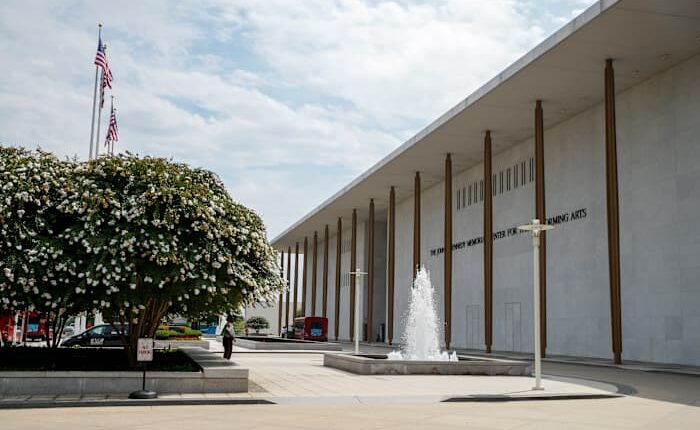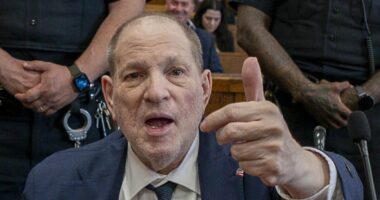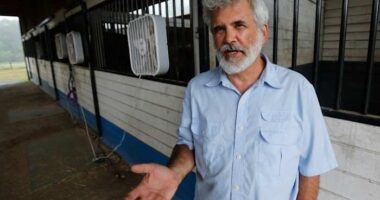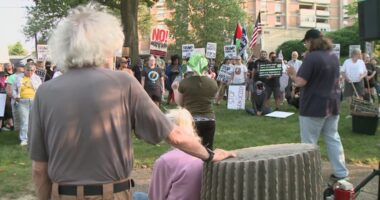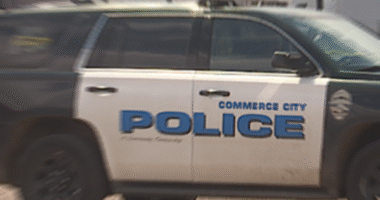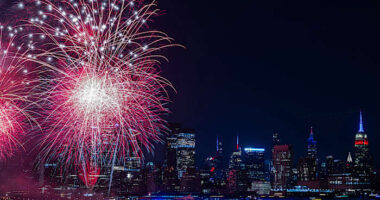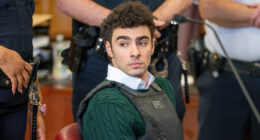
President Donald Trump will be attending the opening night of the musical “Les Misérables” at the Kennedy Center in Washington. He has made significant changes to the leadership of the center, positioning loyalists and appointing himself as chairman. Trump has expressed his dissatisfaction with the programming at the venue, deeming it too focused on leftist ideology and political correctness.
The President’s decision to attend the sold-out performance of the Tony Award-winning musical signifies his increased interest in the arts center. Previous presidents have had limited involvement with the Kennedy Center, primarily appointing board members and attending the annual honors program.
The Kennedy Center is located along the Potomac River and serves as a tribute to a former Democratic president. Trump’s visit to the center highlights his administration’s unique focus on the performing arts venue and its cultural significance.
But after returning to office in January, Trump stunned the arts world by firing the Kennedy Center’s longtime director and board and replacing them with loyalists, who then named him as chairman, and promising to overhaul its programming, management and even appearance as part of an effort to put his stamp on the national arts scene.
Trump’s appearance in the Opera House on Wednesday, accompanied by first lady Melania Trump, will also mark his first time at a Kennedy Center performance as president. He avoided the venue after entertainment industry pushback to his policies in his first term in office, breaking with presidential tradition by never attending the annual Kennedy Center Honors taping.
His moves have upset some of the center’s patrons and performers.
In March, the audience booed Vice President JD Vance and his wife, Usha, after they slipped into upper-level seats in the Concert Hall to hear the National Symphony Orchestra. Trump appointed Usha Vance to the Kennedy Center board along with White House chief of staff Susie Wiles, Attorney General Pam Bondi and Fox News Channel hosts Maria Bartiromo and Laura Ingraham, among other supporters.
Sales of subscription packages are said to have declined since Trump’s takeover, and several touring productions, including “Hamilton,” have canceled planned runs at the center. Artists such as actor Issa Rae and musician Rhiannon Giddens scrapped scheduled appearances, and Kennedy Center consultants including musician Ben Folds and singer Renée Fleming have resigned.
Understudies may perform Wednesday night due to boycotts by “Les Misérables” cast members.
Since returning to the White House in January, Trump has adopted a more aggressive posture toward the arts. The White House has taken steps to cancel millions of dollars in previously awarded federal humanities grants to arts and culture groups, and Trump’s budget blueprint proposed eliminating the National Endowment for the Arts and the National Endowment for the Humanities.
Trump has also targeted Smithsonian museums by signing executive orders to restrict their funding and by attempting to fire the director of the National Portrait Gallery.
Trump hosted the board at the White House for dinner in May and said congressional Republicans have pushed for more than $250 million for repairs and maintenance at the Kennedy Center. He claimed that “tremendous amounts of money” had been spent at the center but “they certainly didn’t spend it on wallpaper, carpet or painting.”
He characterized previous programming as “out of control with rampant political propaganda” and said it featured “some very inappropriate shows,” including a “Marxist anti-police performance” and “Lesbian-only Shakespeare.”
Trump cited some drag show performances as a reason to take control of the center, though next season’s theater lineup includes ”Mrs. Doubtfire,” which tells the story of a divorced man who disguises himself as a female nanny so he can spend time with his children.
Trump also visited the Kennedy Center in March to preside over a board meeting and take a tour.
The Kennedy Center, which is supported by government money and private donations, opened in 1971 and for decades has been seen as an apolitical celebration of the arts.
It was first conceived in the late 1950s, during the administration of Republican President Dwight Eisenhower, who backed a bill from the Democratic-led Congress calling for a National Culture Center. In the early 1960s, Democratic President John F. Kennedy launched a fundraising initiative, and his successor, President Lyndon B. Johnson, signed into law a 1964 bill renaming the project the John F. Kennedy Memorial Center for the Performing Arts. Kennedy had been assassinated the year before.
Copyright 2025 The Associated Press. All rights reserved. This material may not be published, broadcast, rewritten or redistributed without permission.
